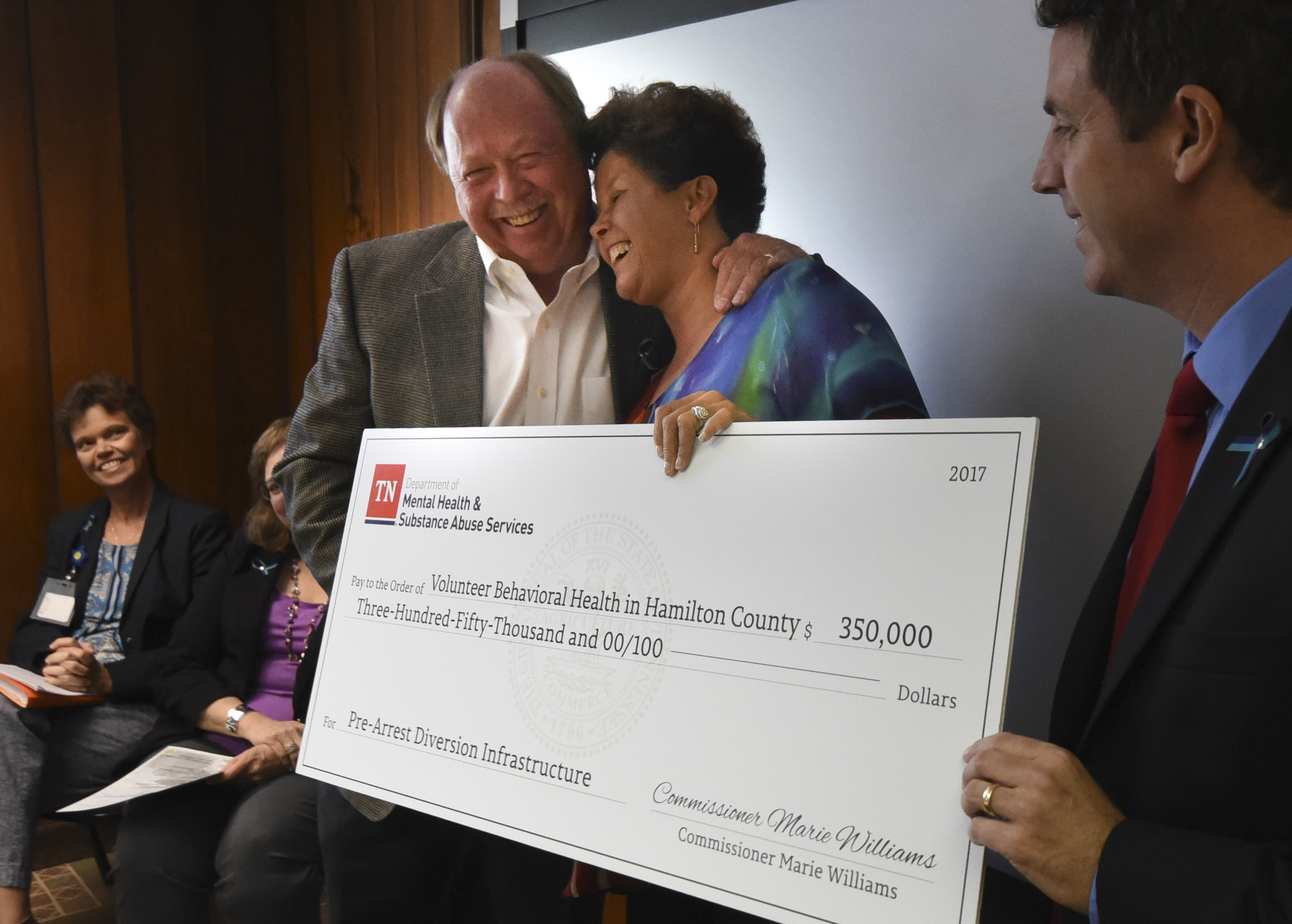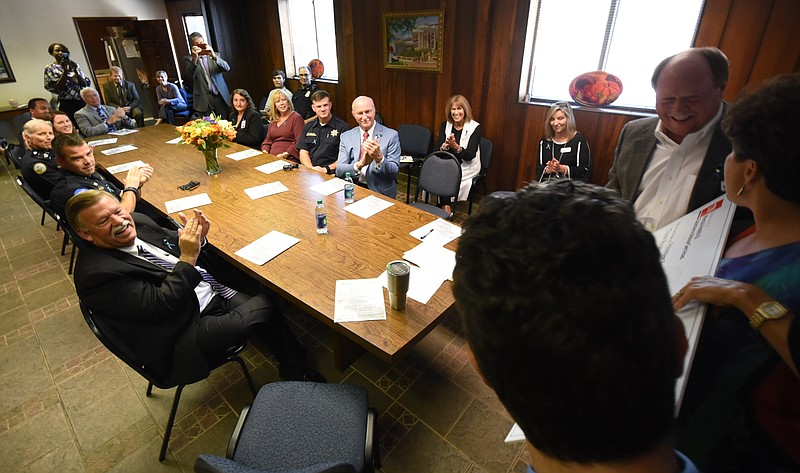 Marie Williams, center, Commissioner of the Tennessee Department of Mental Health and Substance Abuse Services, delivers a $350,000 grant to Chris Wyre, left, President and CEO of Volunteer Behavioral Health Friday at the Johnson Mental Health Center in Chattanooga. The monies are directed for a pre-arrest diversion program for Hamilton County. Matt Yancey, assistant to the commissioner, stands, near right.
Marie Williams, center, Commissioner of the Tennessee Department of Mental Health and Substance Abuse Services, delivers a $350,000 grant to Chris Wyre, left, President and CEO of Volunteer Behavioral Health Friday at the Johnson Mental Health Center in Chattanooga. The monies are directed for a pre-arrest diversion program for Hamilton County. Matt Yancey, assistant to the commissioner, stands, near right.With a giant $350,000 check now in hand, Volunteer Behavioral Health of Chattanooga is ready to begin building its pre-arrest diversion program to keep clients with mental illness out of jail.
The money was awarded Friday by the leadership of the Tennessee Department of Mental Health and Substance Abuse Services, which doled out $15 million in nonrecurring funds across the state.
Volunteer Behavioral Health will use its share to renovate its facility on the North Shore and add around a dozen new staff members. The hope is that law officers will be able to bring people who need mental health treatment there rather to a jail cell.
"We're just going to give you that safe place to sit here, calm down - let's figure out what's really going on," said Dawn Carlton, vice president of fiscal services for Volunteer Behavioral Health.
"Let's get over that initial hump and then we'll sit down and talk with you about what's going on and what we need to do tomorrow to get you hooked up with the right services," Carlton said.
On the list of coming renovations is an observation area that will be open 24/7 to walk-ins who need somewhere to go and receive support while in mental crises. Employees will work with them over a 23-hour period to tailor assistance moving forward.
"That'll be a quiet place that people can come, be safe, be monitored, see the medical provider if that's what called for and hopefully link up with a care manager," Carlton said.
Those to be hired include a care coordinator who will guide services, a nurse practitioner to write prescriptions and several technicians to work one-on-one with clients.
Public officials and members of law enforcement cheered the award to Volunteer Behavioral Health and voiced their full support for the nonprofit organization's efforts.
Chattanooga police Chief David Roddy said police officers have had limited options for handling people with mental health issues, and it can be frustrating to see so little change in the trajectories of those individuals' lives.
"To have an option that now the officers will be able to actually be a participant in - they will be that individual that helps them begin the process to change the direction of where they are headed and put them in a new direction - is a huge thing for a police officer," he said.
"It means a lot to everybody here from the Chattanooga Police Department to have another option on dealing with the members of our community that need the most help."
General Sessions Court Judge Lila Statom said she shares a similar perspective from her seat on the bench.
"I do appreciate this so much, because so oftentimes our hands were just tied and you have family members calling you, writing you letters, 'please do something,' and there were no options available," she said.
Administrators at Volunteer Behavioral Health expect to offer the new services to several hundred people over the next year, in addition to the huge number of people who use the existing walk-in clinic and other programs.
"We have about 200 people come through that walk-in center every month, so I expect that number is going to jump and that's fine," said Kandy Templeton, senior vice president of clinical services for the organization.
"We serve a very vulnerable population, but the folks who come through that door downstairs are probably some of the most vulnerable. They're in crisis, they're hurting and they need our help."
Contact staff writer Emmett Gienapp at egienapp@timesfreepress.com or 423-757-6731. Follow him on Twitter @emmettgienapp.
